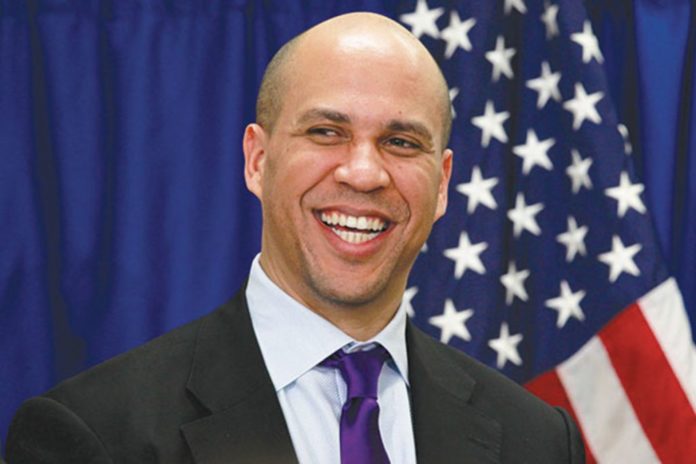WASHINGTON, D.C. – In what is being called landmark legislation, U.S. Senator Cory Booker (D-NJ) today introduced the “Marijuana Justice Act of 2017,” an ambitious bill that would if passed undo “decades of failed drug policy that has disproportionately impacted communities of color,” according to a prepared statement from the senator’s office.
In addition to removing cannabis from the list of controlled substances, the Marijuana Justice Act also would retroactively “apply to those already serving time behind bars for marijuana-related offenses, providing for a judge’s review of marijuana sentences,” continued the statement.
“Descheduling marijuana and applying that change retroactively to people currently serving time for marijuana offenses is a necessary step in correcting this unjust system,” said Booker. “States have so far led the way in reforming our criminal justice system and it’s about time the federal government catches up and begins to assert leadership.”
Queen Adesuyi, policy associate at the Drug Policy Alliance, commented, “This bill is the most ambitious marijuana bill we have seen in Congress. Uniquely, it recognizes the fact that people of color have borne the brunt of the failed war on drugs and seeks to repair the damage done. We applaud Senator Booker for his leadership on this issue.”
Specifically, the statement added, the Marijuana Justice Act will:
• Remove marijuana from the list of controlled substances, making it legal at the federal level;
• Incentivize states through federal funds to change their marijuana laws if marijuana in the state is illegal and the state disproportionately arrests or incarcerates low-income individuals and people of color for marijuana-related offenses;
• Automatically expunge federal marijuana use and possession crimes;
• Allow an individual currently serving time in federal prison for marijuana use or possession crimes to petition a court for a re-sentencing;
• Create a community reinvestment fund to reinvest in communities most impacted by the failed War on Drugs and allow those funds to be invested in the following programs:
o Job training;
o Reentry services;
o Expenses related to the expungement of convictions;
o Public libraries;
o Community centers;
o Programs and opportunities dedicated to youth; and
o Health education programs.
An ardent critic of Attorney General Jeff Sessions’ efforts to revive the war on drugs, Booker earlier this year also re-introduced the bipartisan CARERS Act, ”which would allow patients to access medical marijuana in states where it’s legal without fear of federal prosecution,” added the statement. “He is also co-author of bills to restrict the use of juvenile solitary confinement and reform the way women are treated behind bars.”
The bill can be read here.











